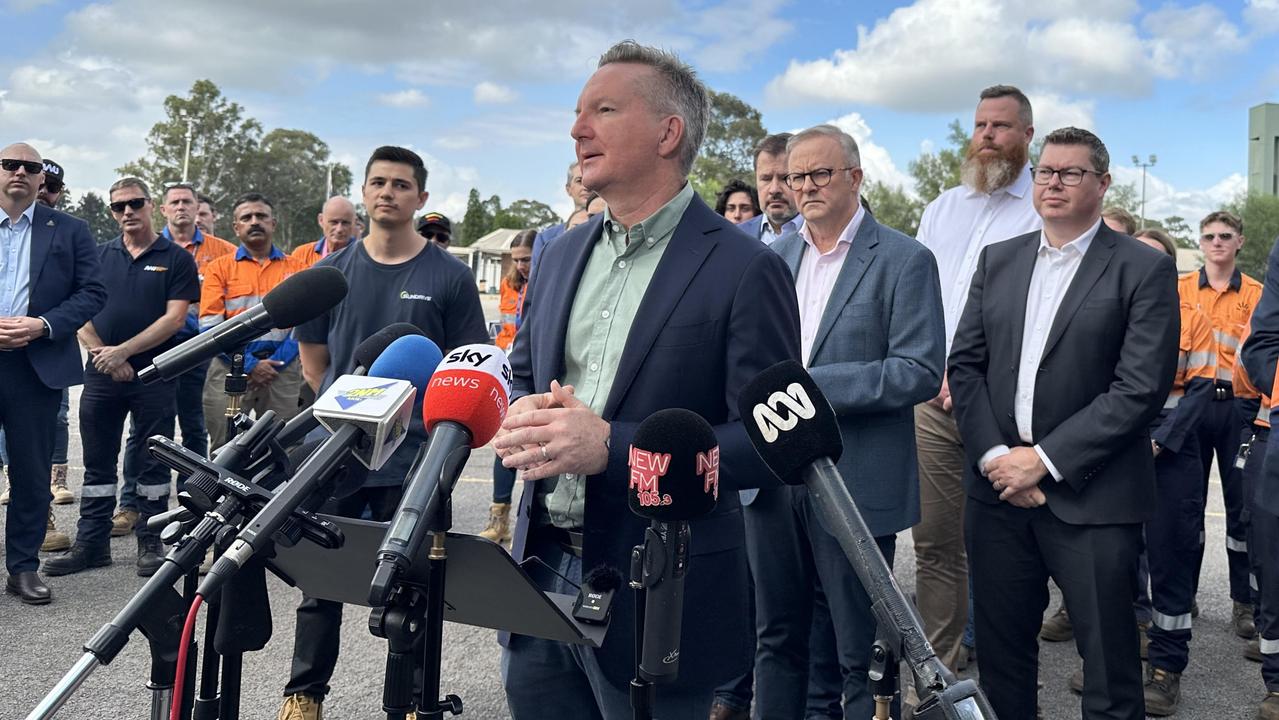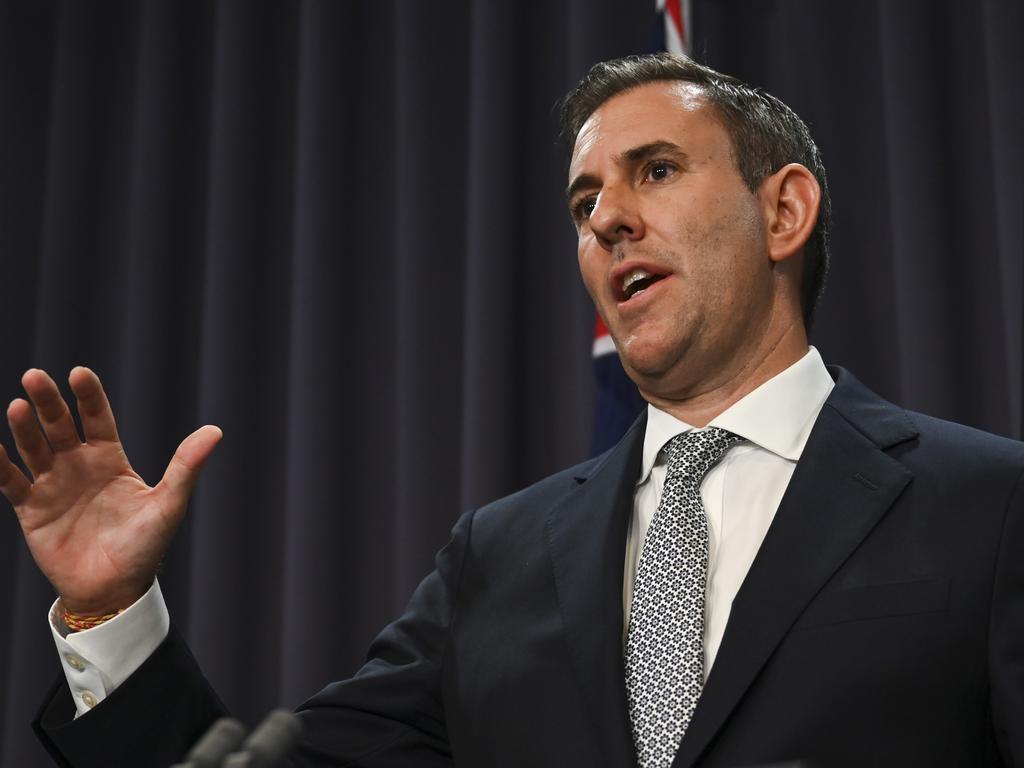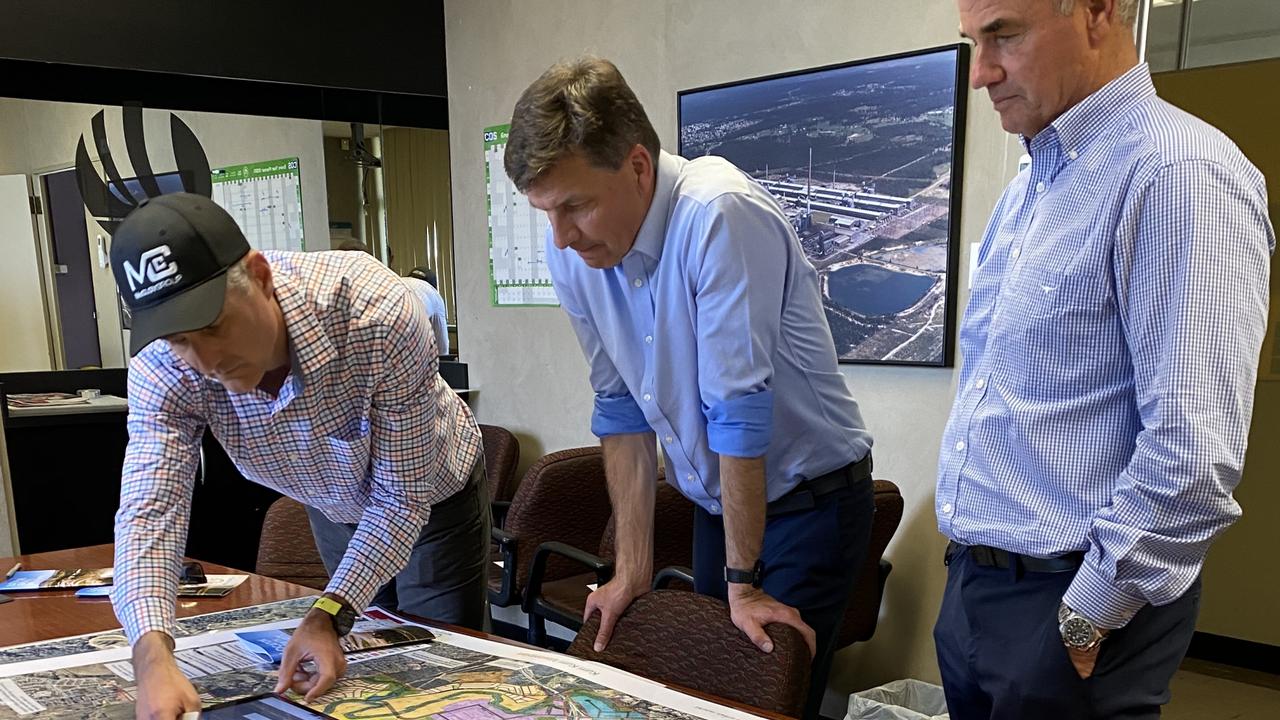I refer to an opinion piece written by former ACTU president Jenni George who is imploring the federal Labor government to treat gas as an important feedstock to industry and as a transition energy source on the decarbonisation path.
Quote from Jenni George:
The current Future Made in Australia project is central to Labor’s ambition of being an energy superpower at home and abroad.
But good intentions can fail and have long-term consequences. The most shortsighted decision was Labor’s failure to introduce a gas reservation policy. The closure of Qenos attests to that.
Another quote from Jenni George:
The loss of Qenos with hundreds of manufacturing jobs and its flow-on effects is ringing alarm bells. Regrets down the track will be too little, too late.
Another quote from Jenni George:
Our national security depends on energy security.
The blinkered approach to gas in Labor circles is akin to sticking one's head in the sand. Labor needs to change its policy for the betterment of all Australians and stop chasing Green/Teal votes.
The OP is set out below. It was published in The Australian yesterday.
***********************************************************************************************
Without a reliable gas base, the Made in Australia project will run out of steam
Prime Minister Anthony Albanese and Climate Change and Energy Minister Chris Bowen visited the Hunter Valley in March to announce the Liddell Power Station, near Muswellbrook, will be developed as a solar manufacturing hub. Picture: PMO
“Made in Australia” makes everything old feel new again. Labor consistently has pledged a bright future for manufacturing.
The current Future Made in Australia project is central to Labor’s ambition of being an energy superpower at home and abroad.
But good intentions can fail and have long-term consequences. The most shortsighted decision was Labor’s failure to introduce a gas reservation policy. The closure of Qenos attests to that.
So, too, the closure of our only solar manufacturing plant back in 2009. Back then, before the boom, we led the world in solar cell technology. It’s hard to imagine a domestic solar manufacturing industry in the future.
Manufacturing is at an all-time low of 6 per cent of the workforce. Its strength in the regions declined, with growing job losses, across the decade ending in 2021. In that time 13,750 manufacturing jobs were lost in the industrial regions of Newcastle and the Hunter Valley in NSW, the ratio falling from one in eight jobs to one in 15.
To stop this continuing decline, gas has to be recognised as an essential source of energy and feedstock for the manufacturing industry. Labor is conflicted. Climate Change and Energy Minister Chris Bowen rejects gas even as a transition fuel. Yet Labor can’t guarantee industry a reliable and affordable source of baseload power all day, every day. Until this is resolved, Made in Australia will be on shifting sands.
The loss of Qenos with hundreds of manufacturing jobs and its flow-on effects is ringing alarm bells. Regrets down the track will be too little, too late.
Treasurer Jim Chalmers. Picture: NCA NewsWire/Martin Ollman
The response of the Productivity Commission’s new chairwoman, Danielle Wood, reflected concerns shared by many. A range of businesses involved in the energy transition are beneficiaries of government financial support, provided through grants, loans, co-investments, commercial in confidence agreements, proposed production and taxation subsidies.
Jim Chalmers now estimates that the costs of the transition will be in the hundreds of billions. The public’s right to know demands greater transparency about expenditures from the public purse.
Recently even the business case justifying the $12bn cost of Snowy 2.0 was withheld from Senate estimates. There are plans to manufacture solar panels at the Liddell site with funding from the $1bn Solar Sunshot program. Not long ago this site was promoted by AGL and Fortescue as a green hydrogen hub. Flying kites in the contest for financial subsidy is commonplace. Magic-pudding economics and corporate rent-seeking are part of a growing merry-go-round underwritten from the public purse. Crony capitalism is an apt description.
Resurrecting a domestic solar manufacturing industry, a key plank of Made in Australia, disregards analysis from the International Energy Agency and research from Wood Mackenzie.
Their data confirms a domestic solar industry could not be competitive. China’s production costs plummeted by 42 per cent last year, dropping from 26c a watt to 15c, more than 60 per cent below the US price of 40c. India’s cost was 22c and Europe’s 30c a watt.
This has led to a global glut of stockpiled solar panels. Plant closures and insolvencies followed across Europe and Britain. This requires the government to clarify the objectives and goals of its $1bn Solar Sunshot project. How will funds be allocated; what are the expected returns and benefits from this sizeable contribution?
Our national security depends on energy security. A range of strategies is needed to diversify our renewables supply chain, now dominated by China. We should replicate the US Uyghur Forced Labour Prevention Act, which has led to positive outcomes. Other options include procuring more from India, commercialising the use of copper technology in panels and imposing penalties against product dumping.
Angus Taylor with Snowy Hydro chief executive Paul Broad, right, inspecting plans for a gas fired power plant at Kurri Kurri in 2020.
The Kurri Kurri gas-fired plant saga is a recent warning to Labor about making promises for the wrong reasons. Its opposition to the gas-fired plant was overturned on a promise it would start up on a 30 per cent hydrogen mix, growing to 100 per cent no later than 2030. This was meant to appease the opponents of fossil fuel, but it was made without due diligence.
The plant won’t open on a hydrogen mix – there’s none commercially available. Nor can it ever be converted to a hydrogen plant. Its costs have blown out from $600m to $950m, before adding the $450m contract for the imported pipeline and storage facility.
The gas supply will be restricted to 10 hours at a time, not accessible 24/7. When it opens in December, delayed by 20 months since Liddell’s closure, it’s likely to be operating on diesel and not on gas.
In future, beware of the pitfalls of virtue signalling. When good intentions fail, credibility suffers and social licence erodes. It’s a predictable outcome if important decisions are driven by politics and perception, rather than based on sound economic judgment and the national interest. Hopefully these lessons will be learnt and not forgotten in the revived “made in Australia” campaign.
Jennie George is a former ACTU president and a former federal MP for Throsby.
- Forums
- Political Debate
- Gas Yes Says fmr ACTU President Jenni George
Gas Yes Says fmr ACTU President Jenni George
- There are more pages in this discussion • 3 more messages in this thread...
You’re viewing a single post only. To view the entire thread just sign in or Join Now (FREE)












